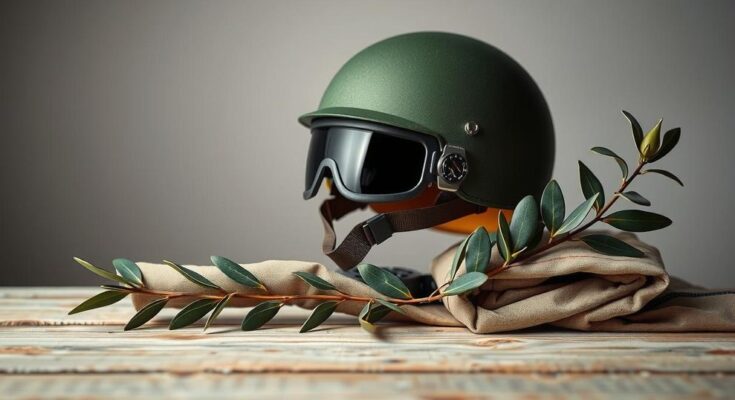Rwandan-backed M23 rebels have captured districts in eastern DRC, prompting President Tshisekedi to urge military enlistments. The escalation, particularly after their occupation of Goma, signifies a critical threat to stability, prompting international concern over Rwanda’s involvement. Tshisekedi criticized global inaction and called for a united response against the rebels, as well as addressed accusations of exploitation of DRC’s resources.
The situation in eastern Democratic Republic of the Congo (DRC) has escalated as Rwandan-backed M23 rebels continue their advance, recently taking control of two districts in South Kivu. This surge toward Bukavu, the provincial capital, occurred without significant fighting, according to local sources. Congolese President Félix Tshisekedi has publicly urged young citizens to enlist in the military amid this growing threat, promising a “vigorous and coordinated response” to the aggression.
The rebels’ occupation of Goma, the capital of North Kivu province, marks a significant increase in hostilities, reminiscent of the conflict dynamics from 2012. Tshisekedi highlighted the strategic importance of Kavumu, which serves as a critical defense line. Should the M23 advance past this point, Bukavu would face imminent danger, particularly as many Congolese troops had retreated to that city after leaving Goma.
In response to the M23’s actions, Tshisekedi criticized the international community for its perceived inaction, emphasizing the urgency of the situation in a region already suffering from ongoing strife. He depicted the rebels as “terrorists and their sponsors,” calling upon the youth to serve as the frontline defenders of their nation. The president’s call to arms underscores the gravity of the conflict in the DRC, in light of the backing M23 receives from Rwandan forces.
The United Nations estimates that approximately 4,000 Rwandan troops are assisting the M23 rebels, far surpassing their presence during previous conflicts. As international scrutiny grows, nations such as the United States, Germany, and the United Kingdom have expressed their concerns over Rwanda’s intervention, with the UK placing funding at risk due to Rwanda’s involvement.
Meanwhile, Rwanda has denied allegations of military involvement, asserting that its actions are aimed at countering the Democratic Forces for the Liberation of Rwanda (FDLR) group, which is linked to the 1994 Rwandan genocide. This viewpoint has been refuted by DRC officials who claim that Rwanda is exploiting the region’s mineral wealth, a sentiment supported by UN assessments regarding Rwanda’s influence over the M23.
Amid this turmoil, Tshisekedi opted not to participate in an emergency summit organized by the East African Community. This summit, attended by Rwandan President Paul Kagame, sought to advocate for a ceasefire and dialogue between the DRC and armed groups, highlighting regional leaders’ attempts to mediate the conflict.
The ongoing conflict in the DRC, particularly in its eastern regions, stems from historical tensions and the involvement of neighboring countries, specifically Rwanda. The DRC is rich in resources such as gold and cobalt, which has fueled regional unrest and accusations of exploitation by foreign entities. The M23 rebel group’s resurgence, backed by Rwanda, has reignited fears of widespread violence and instability, drawing concern from the international community and prompting calls for intervention and dialogue.
The DRC is currently facing a critical juncture as Rwandan-backed M23 rebels have intensified their advance, threatening key urban centers such as Bukavu. President Tshisekedi’s call to arms reflects the urgency of mobilizing the youth to defend their country against perceived threats. As international pressure on Rwanda mounts and regional leaders seek a resolution, the conflict underscores the complex interplay of local dynamics and global geopolitics in the Great Lakes region.
Original Source: www.theguardian.com




